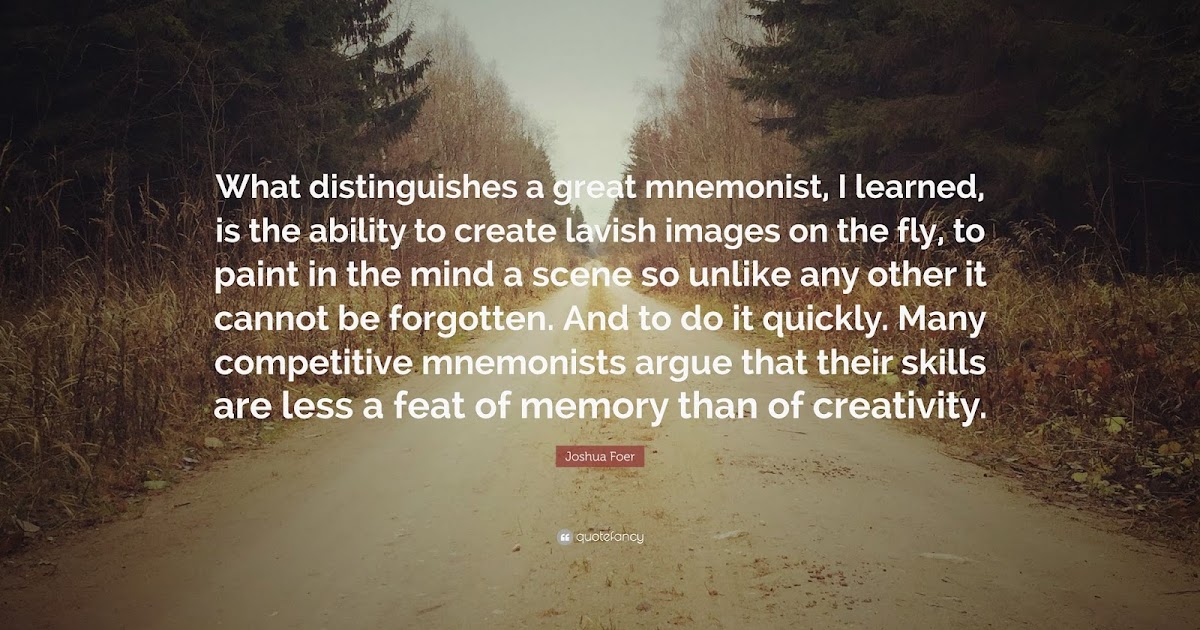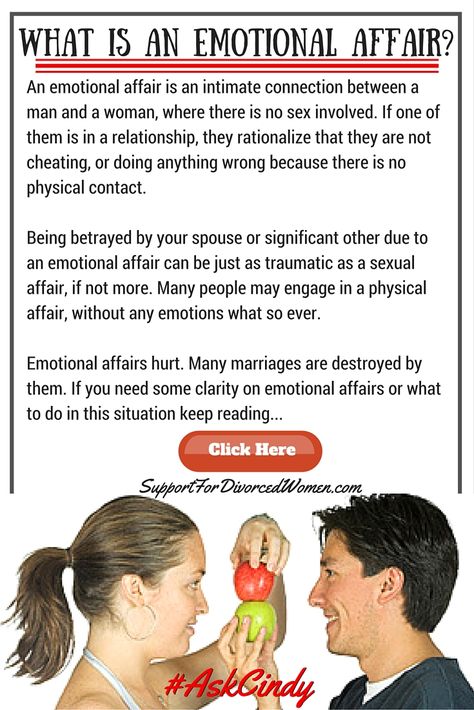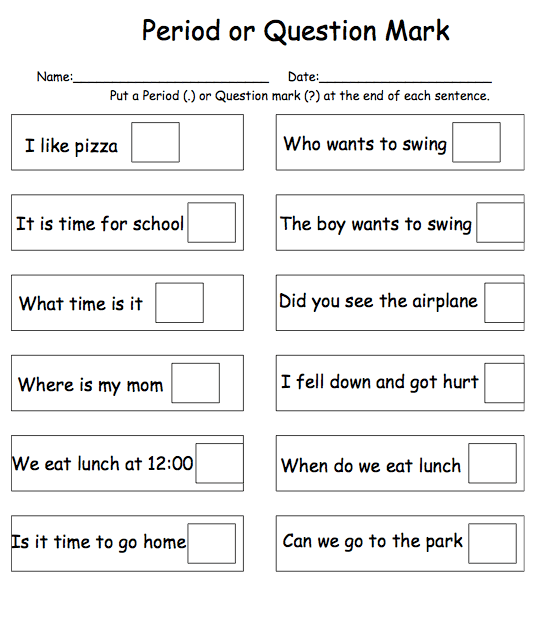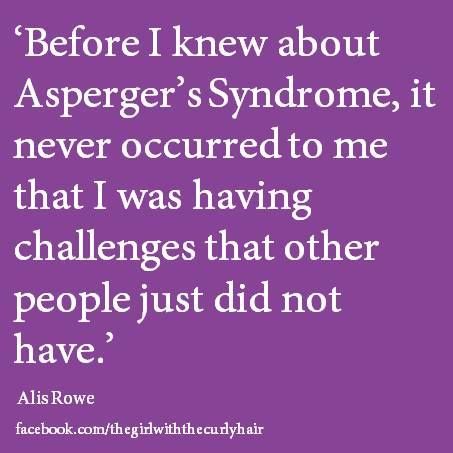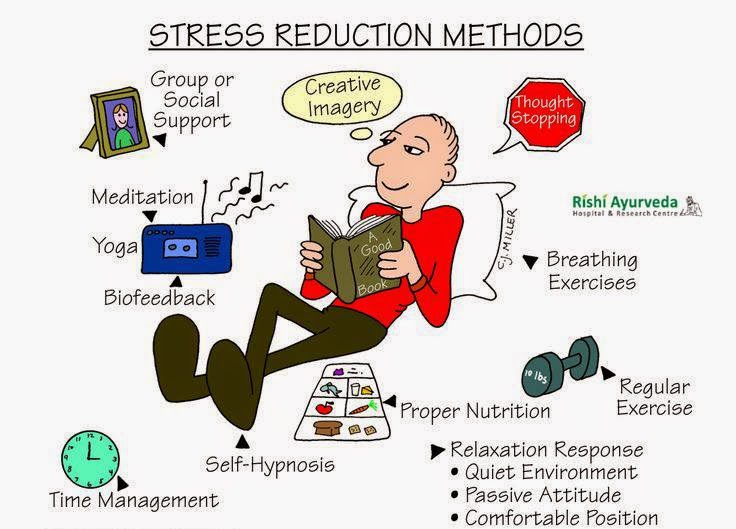Meaning of feeling lonely
What It Means When We Say “Feeling Lonely”
Struggling With Feeling Lonely and Isolated?
Click Here To Get Started With BetterHelp
Feeling alone can happen anywhere. Loneliness, however, does not always coincide with physically being alone. In fact, we are often capable of spending time alone with ourselves and not feeling lonely. By contrast, sometimes we can be in a crowd of people, even a group of people we care about, and still feel alone. If that’s the case, what does it really mean when we say that we feel alone or lonely?
Loneliness is a common emotion that most people feel occasionally. However, if you’re feeling alone too often, or if that feeling is affecting your ability to function, loneliness may have become an issue in your life. When that happens, loneliness can lead to stress, depression, and other potential negative health consequences.
By understanding how to recognize the feeling of loneliness and what you can do to address it, you can improve your mental well-being, both when you are alone and when you are with others. Below is a discussion to help you understand loneliness and to give you some tools for addressing this issue if it is affecting your life.
Many life situations can lead you to feel lonely. Periods of life change are times when many people are especially prone to feeling lonely. For example, when you move to a new place, start a new job, or end a relationship, you may feel especially lonely. In these situations, you often have lost the support systems you previously had in place, and may find yourself looking for new people to spend time with and depend upon. You may feel lonely in these situations for a little while, but usually you can adjust to your circumstances and start to feel better. However, big life changes aren’t the only possible causes for feelings of loneliness.
Often, when we say, “I feel lonely,” what we can actually be saying is, “I feel misunderstood,” “I don’t feel seen,” or “I don’t feel heard.” If you’re feeling alone even when you are around other people, this might be what’s going on inside. Maybe your family, your friends, or even a romantic partner doesn’t seem to understand what you’re going through. You might be in a situation that they’ve never been in before, such as dealing with a mental or physical health condition, for example, or maybe you’re going through a divorce or other major life change, whereas they haven’t been through those things. Even if they have compassion, they may not fully get it, which can feel lonely.
Maybe your family, your friends, or even a romantic partner doesn’t seem to understand what you’re going through. You might be in a situation that they’ve never been in before, such as dealing with a mental or physical health condition, for example, or maybe you’re going through a divorce or other major life change, whereas they haven’t been through those things. Even if they have compassion, they may not fully get it, which can feel lonely.
Other possible reasons someone might feel alone include feeling like one hasn’t yet found their place in the world, or feeling different from the people one is surrounded by. Maybe your friends are suddenly in a life stage that feels different from your own. Perhaps you haven’t found the career, hobbies, activities, or communities that make you feel satisfied and welcomed. You might be going through a time where you feel lost or without a strong sense of self. Maybe you have changed as a person, or you left a situation where you didn’t feel as though you were able to fully be yourself. This can be a great time for discovery, but it can feel isolating too.
This can be a great time for discovery, but it can feel isolating too.
Regardless of why you feel alone, it can be an unpleasant sensation to experience, and it’s likely that you’re ready to move on from it.
Signs That You Feel LonelyMaybe you don't even realize that you're engaging in activities designed to dodge loneliness. Or you’re not feeling your best and are starting to suspect that it could, in part, be due to withdrawal from other people or due to feeling lonely. Below are some potential signs that an individual might feel lonely.
Elevated Stress LevelsPositive social relationships are thought to be correlated with lower stress levels, so it does make sense that elevated stress levels are often affiliated with loneliness. If you feel lonely, you might notice physical or mental signs of stress, like clenching your jaw, trouble sleeping, or aches and pains.
Excessively Checking Social MediaSocial media is a wonderful way to connect with people, but it does not entirely replace face-to-face interactions.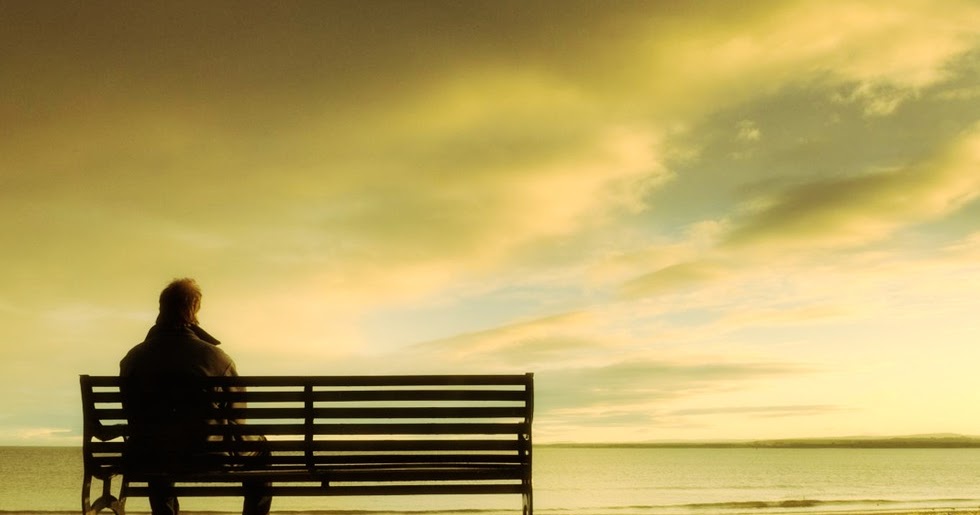 If you're feeling lonely in a relationship, whether a friendship or a romantic relationship, you may want to step back and look at how much real-world time you are actually spending with the people you care about. Sometimes, constantly scrolling through social media is an indication that you are not actually very close to your friends and family or, if you are close, that you’re missing a certain kind of understanding they can’t provide.
If you're feeling lonely in a relationship, whether a friendship or a romantic relationship, you may want to step back and look at how much real-world time you are actually spending with the people you care about. Sometimes, constantly scrolling through social media is an indication that you are not actually very close to your friends and family or, if you are close, that you’re missing a certain kind of understanding they can’t provide.
Alternatively, it could be that you’re not around people physically. For example, you might be engaging in social isolation or withdrawing from other people due to feeling down, anxious, or because of something else that’s going on. Studies show limiting social media usage can decrease loneliness and increase overall well-being for some people. Spending less time scrolling your feeds might actually help you feel more connected.
Spending MoneySpending money on inanimate objects can be a sign of loneliness. Studies have shown that so-called “retail therapy” can give our brains a boost. It’s okay to do this in moderation, but if you find yourself substituting shopping for other healthy ways to boost your mood, this may be a sign of an issue that you need to address.
It’s okay to do this in moderation, but if you find yourself substituting shopping for other healthy ways to boost your mood, this may be a sign of an issue that you need to address.
Struggling With Feeling Lonely and Isolated?
Click Here To Get Started With BetterHelp
What To Do When You Are LonelyWhen you start to recognize that you feel lonely, you can take steps to mitigate it. If sensations of loneliness are unmanageable, persistent, or if they pair with other symptoms, consider reaching out to a professional who is qualified to give personalized guidance.
Allow Your Feelings To Be FeltSometimes, we try to hide or avoid acknowledging our negative emotions, thinking that it will make them go away if we just don't look at them. Unfortunately, repressing emotions can be unhealthy, and can even lead to uncomfortable physical symptoms.
It’s important to acknowledge your authentic feelings, whether you are having difficulty being by yourself, or whether you feel lonely even with others around. Identifying and validating that you feel this way can help you take the next step. In acknowledging loneliness, you may also notice other feelings that could be valuable to address, such as pain, anger, or sadness.
Identifying and validating that you feel this way can help you take the next step. In acknowledging loneliness, you may also notice other feelings that could be valuable to address, such as pain, anger, or sadness.
When we feel lonely we are missing the love and companionship of other people, and this can make us forget to love ourselves. You have a lot of options for exercising self-love, and practicing self-love comes with a lot of benefits. The practice of self-love in some ways simply means taking care of yourself. Often, we don't do the things for ourselves that we would do for others to make them feel better when they are down or are feeling lost and alone. Even if one of the things you need or crave is to find people you can relate to, it can help to treat yourself the way you would treat a friend. Be kind to yourself and practice self-soothing activities. Get in touch with your needs and brainstorm ways to meet them. It may seem strange, but these are things that you can give yourself.
For example, one study showed that when people who were feeling lonely did things that warmed them up, the physical warmth created the same good feelings as emotional warmth from another person. Some things you can try are snuggling up in a blanket, taking a hot bath, or drinking a hot beverage. You can also try physically wrapping your arms around yourself and giving yourself a hug.
Sometimes, when we practice self-love, we also learn what we need from other people and are able to take steps toward being more vulnerable and open when it comes to our needs. So practicing self-love will likely come in handy not just when you’re alone, but also when you are around others or setting out to meet new people.
Build New Thought PatternsSometimes, feelings of loneliness can pair with maladaptive thought patterns. For example, you might notice that you are engaging in all-or-nothing thoughts, personalization, or catastrophizing. An example of a maladaptive thought related to loneliness could be “no one will ever like me. ” There are things you can do to address this and build new thought patterns. Thought reframing is one helpful skill that a lot of people discover when working with a therapist. An example of reframing in this context could be “I haven't met every person I’ll meet in this lifetime, so I don’t actually know if it’s true that no one will ever like me.”
” There are things you can do to address this and build new thought patterns. Thought reframing is one helpful skill that a lot of people discover when working with a therapist. An example of reframing in this context could be “I haven't met every person I’ll meet in this lifetime, so I don’t actually know if it’s true that no one will ever like me.”
Sometimes, loneliness is about being not having people in your life who truly understand you, or in some cases, who truly understand a specific part of you and your life. One way to try to address this is to consider your answer to this question: who do you want to be around, and what kind of people are they? Once you know the answer to that question, you can start to figure out where to find people like you.
Maybe you won’t always have the answer right away, but there could be something specific you’re missing. For example, you might be a part of the LGBTQIA+ community, but you might not have any friends that are as well, or you might not be able to be out to people in your daily life. That can feel lonely. This is a circumstance where spaces like a local GSA or support groups might be beneficial.
That can feel lonely. This is a circumstance where spaces like a local GSA or support groups might be beneficial.
Giving to others is actually a great way to feel connected. Think of something you can do to help your family or community and consider doing it. Giving back to your community is one possible way to build meaning and purpose in your life, and research shows that people who volunteer are often happier and feel less lonely.
Develop Your Personal Goals And InterestsOnce you've looked at your strengths and interests, it's time to make some goals for them. Having goals keeps you focused on what you really want, and having a focus to go back to helps keep you out of the mindset of feeling all alone.
This could relate to work and your career, to your hobbies, or to something else. Maybe there’s something you loved to do as a child that you haven’t had time for in your adult life, but now you can revisit it. Or it could be that there’s something that you’ve always wanted to try but haven’t yet.
Or it could be that there’s something that you’ve always wanted to try but haven’t yet.
Regardless of what your personal goals and interests are, diving into them can help daily life feel more enjoyable and significant. Learning new things can feel empowering and boost your mood or confidence. This could also help you meet new people, if you can find individuals or a group who are interested in the same things.
Address Underlying CausesIt’s important to note that trying different tips and techniques for alleviating loneliness may not work if there are underlying issues that aren’t being addressed. If there’s a potential underlying cause for your feelings of loneliness, such as social anxiety, complicated grief, depression, or other mental health condition, you may need address that in order to address the loneliness. A mental health professional who provides talk therapy may be able to support you, help you recognize underlying causes, and find the solutions that work for you as a unique individual.
If you feel lonely often, it may be time to reach out to a therapist or another experienced specialist. A trusted and qualified professional can help you to overcome barriers to connecting with others, and they can provide a safe place for you to practice being open about yourself. In therapy, you can also address matters like feeling misunderstood, symptoms of depression, or anything else that’s going on in your life.
Research shows that those who experience loneliness and related emotions can benefit from the resources and counseling services provided by online therapy platforms. A study published in Behavior Therapy, a peer-reviewed academic journal, found that Internet-based cognitive-behavioral therapy (CBT) can soothe feelings of loneliness. The study specifically notes that there was a correlation between the amount of time participants spent in therapy and a decrease in loneliness, as well as an increase in quality of life.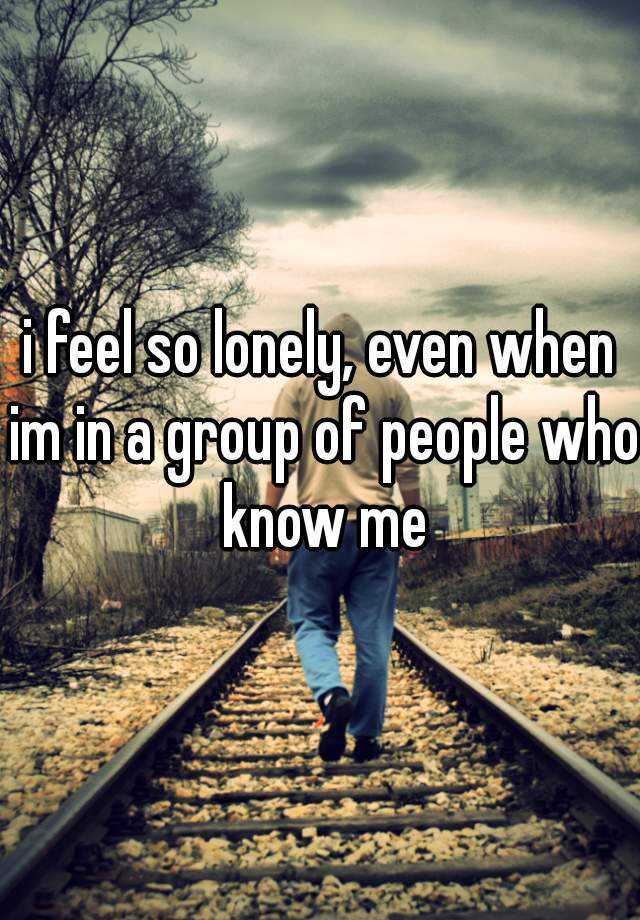 Online CBT programs provide the tools to help reframe intrusive thoughts that can create a sense of isolation, making way for stronger relationships and better social connections.
Online CBT programs provide the tools to help reframe intrusive thoughts that can create a sense of isolation, making way for stronger relationships and better social connections.
You can seek out a professional in your area, or sign up through a reputable online platform that connects you with licensed, independent therapists and counselors, such as BetterHelp. Feelings of isolation or loneliness can be painful and may impact the body as well as the mind, and they can affect anyone. Understand that you’re not on your own, and that help is available to address whatever might be ailing you.
Read the reviews below to see what people are saying about the providers on the BetterHelp platform.
Therapist Reviews
"Jeni is one of a kind. She is caring, compassionate, professional, respectful, easy to talk to, and she makes you feel like you are not alone. When we are communicating, whether it be via email or video sessions, she always makes herself seem relate-able. I really enjoy working with her and think she is great at her profession!"
I really enjoy working with her and think she is great at her profession!"
"I would recommend Ashley to everyone seeking help. She asks the right questions and lets you know you are not alone, and she validates your feelings. I felt like I was hanging on by my fingernails, and in a few weeks, I have calmed and been able to step back and look at my situation."
Takeaway
Feeling lonely may be overwhelming or painful, but it does not have to last forever. With care, you can find relief.
9 Secret Signs of Loneliness
One may be the loneliest number, but research shows that a lack of acquaintances isn't the only warning sign of solitude.
By Madeline R. Vann, MPHMedically Reviewed by Justin Laube, MD
Reviewed:
9 Solo Activities For Managing Loneliness
Medically Reviewed
Ever wonder to yourself why you feel alone even in a crowded room? Even in the midst of family and friends, all of us can feel alone and lonely.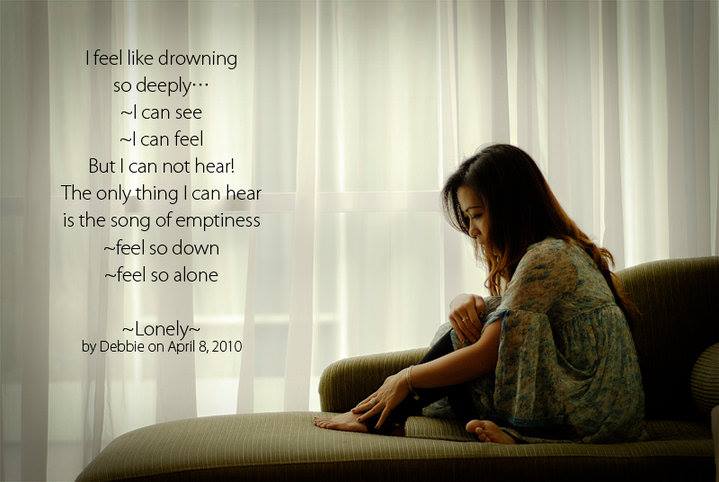 After all, from Elvis to Cher to Akon, musicians have been crooning about loneliness for years.
After all, from Elvis to Cher to Akon, musicians have been crooning about loneliness for years.
Do you know the definition of loneliness? According to the Merriam-Webster online dictionary, loneliness means being without company; cut off from others; sad from being alone.
That's because the emotions that get set off when you're feeling alone can be quite powerful — they can trigger dejection and depression, and in extreme cases, loneliness can lead to earlier death, says John Cacioppo, PhD, a psychologist from the University of Chicago in Illinois.
According to the Mayo Clinic, having a strong social support network is essential during tough times, whether from job stress or a year filled with loss or illness. A social support network is comprised of family, friends, and peers. Having intimate relationships with others helps you feel cared for and maintain optimism, and aids in stress management. All of these emotional benefits lead to stronger immunity to help you fight disease and stress.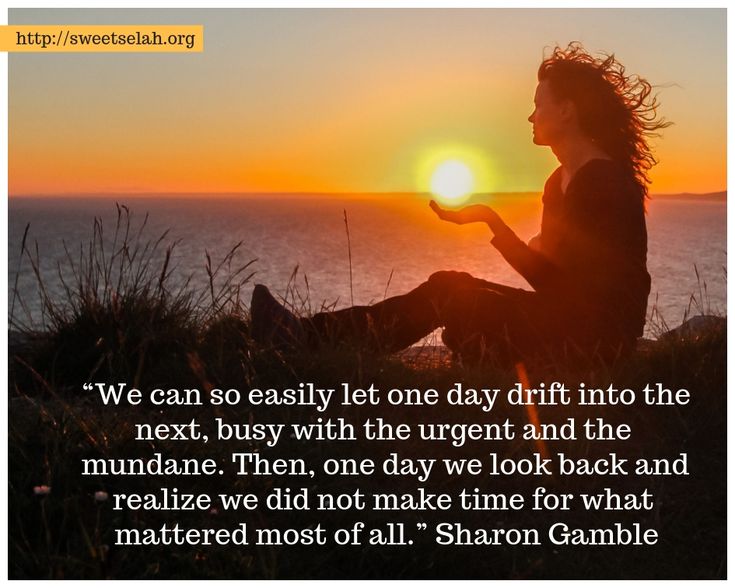
Alternatively, according to Dean Ornish, MD, in his book Love and Survival: The Scientific Basis for the Healing Power of Intimacy, among heart patients, depression is as good a predictor of imminent death as smoking, obesity, or a previous heart attack.
"Study after study shows that people who are lonely, depressed, and isolated are three to five times more likely to die prematurely than people who feel connection in their life,” says Dr. Ornish.
RELATED: Black Mental Health: Fighting Stigma and Building Trust
In a Duke University Medical Center study of 1,400 men and women with at least one severely blocked artery, the unmarried patients without close friends were three times more likely than the others to die over the next five years. Similar findings came in a Canadian study of 224 women with breast cancer. Seven years after diagnosis, 72 percent of the women with at least one intimate relationship survived; only 56 percent of those who did not have a confidant survived. The kind of intimacy necessary appears to be an emotional connection to someone, not necessarily a sexual relationship.
The kind of intimacy necessary appears to be an emotional connection to someone, not necessarily a sexual relationship.
Another supporting study, published in the Journal of the American Medical Association revealed that people with more diverse social networks (less social isolation) have a greater resistance to upper respiratory infections.
But how do you resolve loneliness? Everyone feels a little lonely now and again, and experts say that this forlornness can actually be a good thing, as long as you do something about it. "Loneliness is actually an evolutionary adaptation that should spur us to get back to socializing, a state in which we are happier and safer," says Dr. Cacioppo.
Could you be lonely without even realizing it? These signs point to "yes."
352
Loneliness Can Wreck Restful Sleep
ShutterstockAccording to research published in the journal Sleep, loneliness can wreck your chances of getting a restful night's sleep. Researchers measured the sleep cycles of 95 people in South Dakota, comparing them with the participant's self-reported loneliness scores. None of them lived isolated lives, but some reported feeling lonelier than others.
None of them lived isolated lives, but some reported feeling lonelier than others.
The results? The lonelier the participant, the higher the levels of fragmented sleep. "What we found was that loneliness does not appear to change the total amount of sleep in individuals, but awakens them more times during the night," lead author Lianne Kurina, PhD, said in a press release.
"When you feel lonely, you show more micro-awakenings," noted Cacioppo, a coauthor of the study. This means you wake up a little bit at night even though you aren't aware of it.
353
Steamy Showers and Hot Chocolate May Soothe Loneliness
ThinkstockHow does a steamy bath or piping-hot cup of coffee sound to you? If it sounds downright comforting, you may want to read this:
"The lonelier a person is, the more showers and baths they take, the hotter the water, and the longer they stay under the water," says John Bargh, PhD, psychologist and researcher at Yale University in New Haven, Connecticut, who conducted a study on physical warmth and social connection.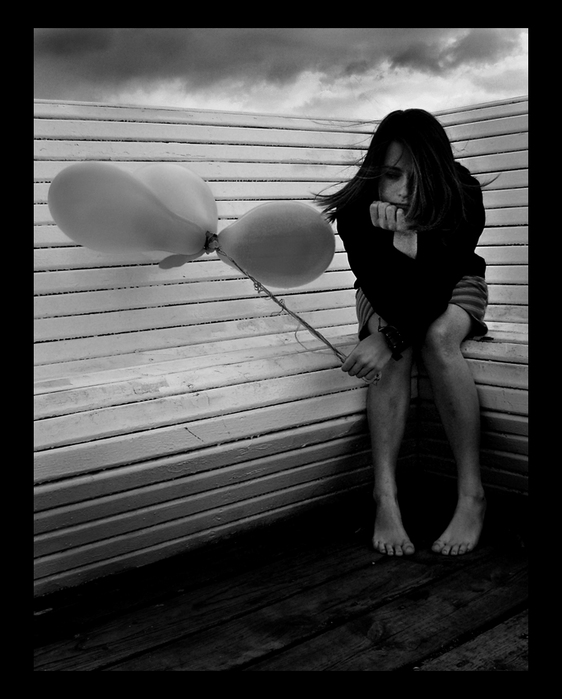 For his research, published in February 2012 in the journal Emotion, Bargh surveyed 51 college students about their levels of loneliness and everyday habits, and concluded that some people use physical warmth as a substitute for social warmth. The students who reported feeling lonelier also tended to linger in the shower longer.
For his research, published in February 2012 in the journal Emotion, Bargh surveyed 51 college students about their levels of loneliness and everyday habits, and concluded that some people use physical warmth as a substitute for social warmth. The students who reported feeling lonelier also tended to linger in the shower longer.
There's nothing wrong with this, Bargh contends — people are not always in control of the reasons they feel alone. It could be due to a breakup, or a recent move. You can also use this finding to your advantage: Next time you're feeling lonesome, whip up a cup of hot cocoa.
354
Love People, Not Stuff
ThinkstockThe reason you're so attached to your new computer, suped-up bike, or overpriced purse? According to research published in the Journal of Consumer Research, some people go gaga over inanimate objects because they're lonely.
The researchers call this "material possession love," and you've probably witnessed it a number of times: your neighbor who calls his car "baby," or your great aunt who prides herself on her gun collection. Because these folks suffer from a lack of social connections, they start doting on their things.
Because these folks suffer from a lack of social connections, they start doting on their things.
And as you can probably guess, most experts say possessions aren't a healthy substitute for real live relationships. In fact, a number of studies indicate that having stuff has little effect on your happiness levels; you'd be better off spending the money on an experience, such as a vacation.
355
Can You Catch Loneliness From a Friend?
ThinkstockYou can catch a cold from your friend — but did you know you can catch his loneliness, too?
According to research published in the Journal of Personality and Social Psychology by Cacioppo and colleagues, lonesomeness can be contagious. In fact, you're 52 percent more likely to feel lonely if someone you're directly connected to is lonely as well, says Cacioppo.
Why? When you're feeling empty or isolated, you may behave in more hostile and awkward ways toward another person, who in turn behaves a bit negatively toward someone else, and so on.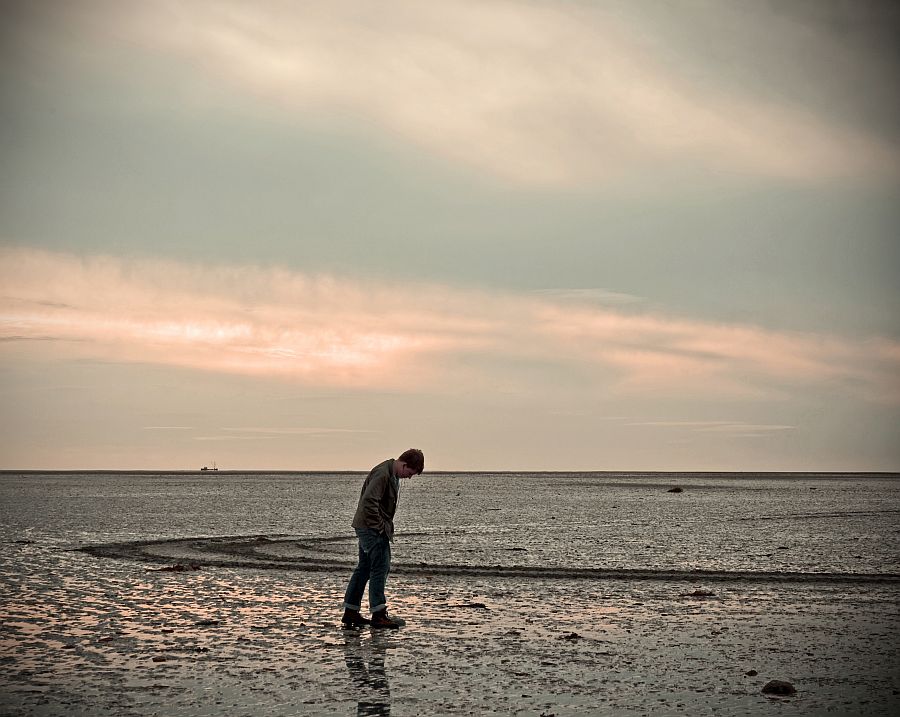 The result can be an outbreak of social isolation and rejection.
The result can be an outbreak of social isolation and rejection.
356
More Facebook 'Friends' Than Real Friends Worsens Loneliness
ThinkstockYou know all about your cousin's recent jaunt to Hawaii — but not because she told you about it; you saw her pictures on Facebook.
According to Facebook, user spend an average of fifty minutes each on its Facebook, Instagram, and Messenger platforms. "Social networking feels temporarily satisfying for people who turn to that as means of interacting," explained Cacioppo. When you're feeling alone, you might spend more time posting on social networking sites or online game forums than actually picking up that phone and arranging a lunch or dinner date. But having a lot of Facebook friends or Twitter followers won't do much to stave off loneliness. Instead, research shows it can exacerbate the problem.
Next time loneliness sets in, Cacioppo suggests using these sites to get in touch with your old friends — instead of just gawking over their wedding photos.
357
Being Lonely Makes You Blow Things out of Proportion
ThinkstockHow many nerve-racking experiences have you had in the past month?
If you can count them up without much hesitation (traffic jams, terrible weather, rude waitresses), that doesn't necessarily mean your stars were crossed this month — instead, it could point to loneliness.
According to Cacioppo, who has studied the effects of loneliness on our health and stress levels, feeling alone often means you spend too much time ruminating. Research published in the journal Current Directions in Psychological Science showed that people who reported being lonely also reported more sources of stress and childhood adversity in their lives. "The brain goes on the alert for social threats," says Cacioppo.
358
Socializing May Help You Stay Skinny
ThinkstockHave you packed on the pounds? Loneliness and weight gain often go hand in hand, possibly because we tend to compensate for our blues with food. In addition, loneliness can zap motivation — keeping us on the couch instead of on the treadmill. And that means it may also be a predictor of health problems, such as high blood pressure and unhealthy cholesterol levels, says Cacioppo.
In addition, loneliness can zap motivation — keeping us on the couch instead of on the treadmill. And that means it may also be a predictor of health problems, such as high blood pressure and unhealthy cholesterol levels, says Cacioppo.
But can socializing help you stay skinny? Perhaps, according to a report published in the journal Cell Metabolism. Although the study looked at mice instead of people, the rodents living in lonelier lab settings tended to weigh more than those in social environments.
359
Feeling Alone Can Make You Ill
Lara Belova/iStock.comSniffling, sneezing, and feeling crummy overall? It could be a bad case of loneliness.
Loneliness has a systemic effect, possibly raising our stress hormone levels and making it harder for our bodies to repair the daily wear and tear of life, says Cacioppo. We humans are a social species. In fact, being part of a social network is so biologically fundamental that feeling alone and disconnected might actually hurt our immunity.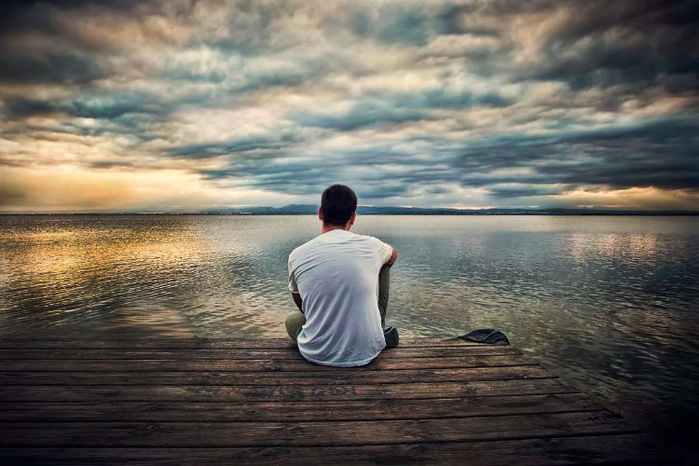
360
Nip Loneliness in the Bud to Prevent Depression
ThinkstockLoneliness often goes hand in hand with one major health problem — depression. In fact, the American Psychological Association says that loneliness is a specific risk factor for the mental health condition.
But just because you've been feeling lonely doesn't mean you are doomed to become depressed. Here's what it does mean: You should start taking steps to nip loneliness in the bud — call up a friend, make dinner plans for next week — so you can prevent depression.
The therapist explained how to overcome loneliness
The topic of loneliness is one that is probably familiar to all of us. Loneliness is the feeling that accompanies us in our development. This is part of the journey of finding yourself. And it leads to the fact that we begin to value relationships more.
Experience of loneliness
Loneliness is experienced very painfully. This is the kind of feeling we want to run away from, and we do it by being distracted by something. We are helped by watching TV shows and movies, computer, mobile phone, travel, alcohol, work. All this helps to get rid of the unpleasant feeling. Because in loneliness we experience that we again find ourselves thrown back to ourselves. In loneliness, I am only with myself. I'm thrown. There is no one around. I don't have a relationship, I don't have anyone I can talk to. Loneliness is the experience of experiencing the absence of a relationship. This feeling can be especially acute in longing for something. If you love someone, you yearn for separation from him. I miss my loved one, I feel connected to him, but I cannot see him. My heart is next to him, and without him or without her, my heart is lost to a certain extent.
We are helped by watching TV shows and movies, computer, mobile phone, travel, alcohol, work. All this helps to get rid of the unpleasant feeling. Because in loneliness we experience that we again find ourselves thrown back to ourselves. In loneliness, I am only with myself. I'm thrown. There is no one around. I don't have a relationship, I don't have anyone I can talk to. Loneliness is the experience of experiencing the absence of a relationship. This feeling can be especially acute in longing for something. If you love someone, you yearn for separation from him. I miss my loved one, I feel connected to him, but I cannot see him. My heart is next to him, and without him or without her, my heart is lost to a certain extent.
A similar feeling can be experienced with nostalgia, when we yearn for our native places. I experienced a very strong longing for my native places when, as a child of 11-12 years old, I was in a boarding school. It was warm and pleasant at home, I had relationships there, I had friends there, and I was at a boarding school far from home. I haven't been home for a whole month. I felt like I was in a foreign world. The world was cold and I felt lost. All this time I thought about what was happening at home, what my relatives were doing: now they got up, now they are having dinner, now the family has gathered at the table. And I was constantly in pain because I was separated from that part of life where I usually experienced warmth, where I had the feeling that I was part of this world. I felt incredibly alone.
I haven't been home for a whole month. I felt like I was in a foreign world. The world was cold and I felt lost. All this time I thought about what was happening at home, what my relatives were doing: now they got up, now they are having dinner, now the family has gathered at the table. And I was constantly in pain because I was separated from that part of life where I usually experienced warmth, where I had the feeling that I was part of this world. I felt incredibly alone.
We may feel lonely at work if we are confronted with some demands, if there are some projects that we have not yet grown up to. Where we feel insecure about them, and if no one supports us at the same time. Then we feel alone. If I know that everything depends on me alone, there may be a fear that will accompany loneliness. It's the fear that I'll be weak, that I'll feel guilty about not being able to do it.
It's even worse if bullying occurs at work. Then I will feel that I am given to it at the mercy of, I am on the edge of society and I am no longer a part of it.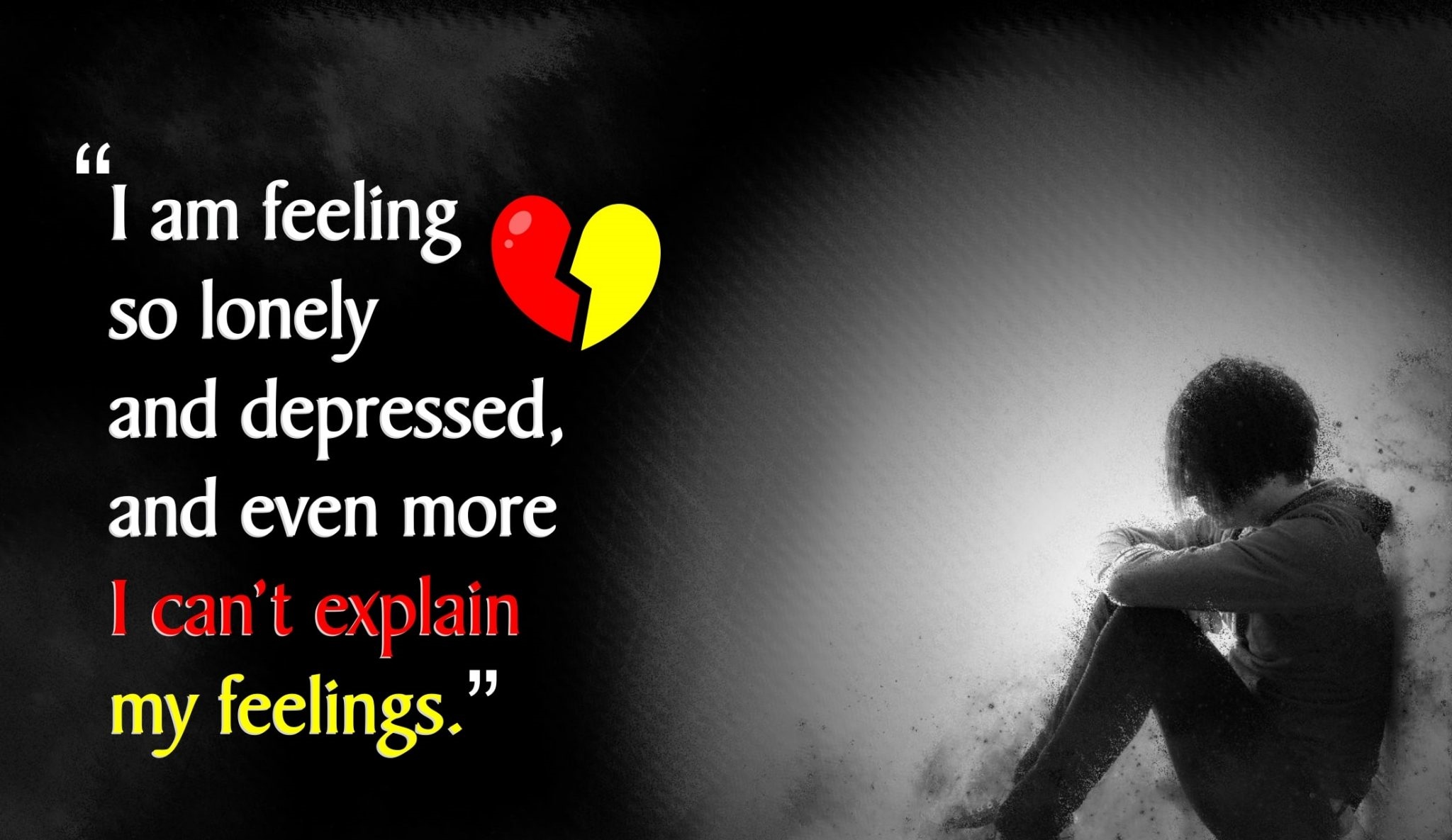
Loneliness is a very big topic in old age, in old age. And in childhood. Children who are not met, children who are left alone if the parents are busy doing something else, may feel helpless in their loneliness. Loneliness traumatizes children, because in solitude they are not able to develop their Self. They stop in development. There is a curvature in the development of the child if he experiences long moments of loneliness. On the other hand, it is not so bad if the child spends a couple of hours alone, because for him this is an impetus for development. Just what is reality.
In old age, loneliness is no longer a traumatic factor and does not hinder development - but it is burdensome. It can cause depression, paranoid feelings, sleep disturbances, psychosomatic complaints, and pseudodementia. It happens that pseudo-dementia is the silence of a person from loneliness. He used to have a family, he worked for decades, was among people, and now he sits at home alone. One of my patients at the age of 85 was sitting at home alone.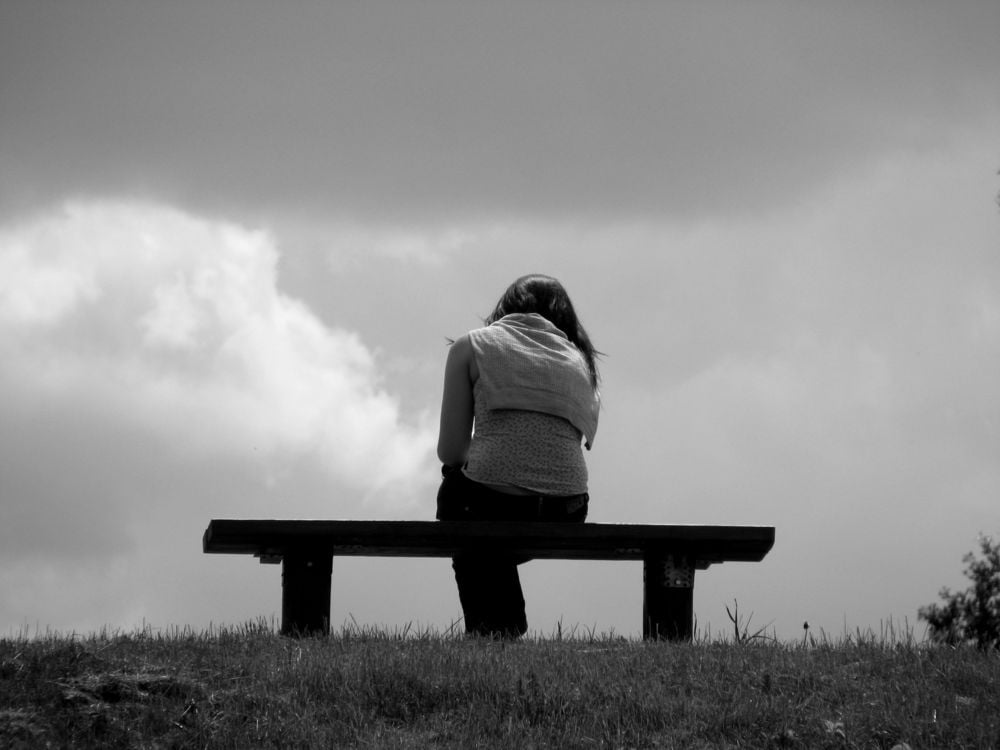 Being her doctor, so that she would not be completely alone, I bought her a canary. She has a living being. This canary helped her live a couple of years longer. She talked to her every day.
Being her doctor, so that she would not be completely alone, I bought her a canary. She has a living being. This canary helped her live a couple of years longer. She talked to her every day.
For most older people, television is their "comfort". But TV is a communication directed only in one direction. And yet man at least hears human voices. And in any case, he can say something to himself, even if no one will hear. I think this is not a bad form of overcoming loneliness, creating a kind of bridge, because it takes the edge off loneliness. But, of course, this is an ersatz, a replacement. In old age, loneliness can be very overwhelming. Especially if he has lost the ability to see or hear. Can I imagine that I have to live in this state for a couple of years? When the only thing that will accompany me is back pain or indigestion. We can imagine how helpless we are in such situations. And here the question of the value of life really arises.
Do I know loneliness? If we ask ourselves: when was the last time I felt lonely? Is loneliness somehow present in my life? Maybe it is hidden behind some businesslike everyday life? If I'm being honest, I can probably find it. Or I may find that there were times when I was alone. Maybe I haven't known this feeling for a long time? Maybe it's foreign to me? Or another pole: maybe I really suffer acutely from loneliness? And it overwhelms me so much that all the joy in relation to life simply disappeared, that the question arises about the meaning of life.
Or I may find that there were times when I was alone. Maybe I haven't known this feeling for a long time? Maybe it's foreign to me? Or another pole: maybe I really suffer acutely from loneliness? And it overwhelms me so much that all the joy in relation to life simply disappeared, that the question arises about the meaning of life.
Loneliness among people
I can experience loneliness not only if I do not have relationships with people. I can feel lonely during some holiday, at a party, even at my own birthday, at school, at work, in my family. Sometimes people are nearby, but something is missing. There is no meeting, there is not enough intimacy, there is no exchange with another person. We have superficial conversations, and I have a need to talk to a person for real. We talk about skiing, about cars, but we don't talk about me and you.
In many families, it is only about some business, who and what should buy, who should cook food, but our relationships, what worries us, are silent.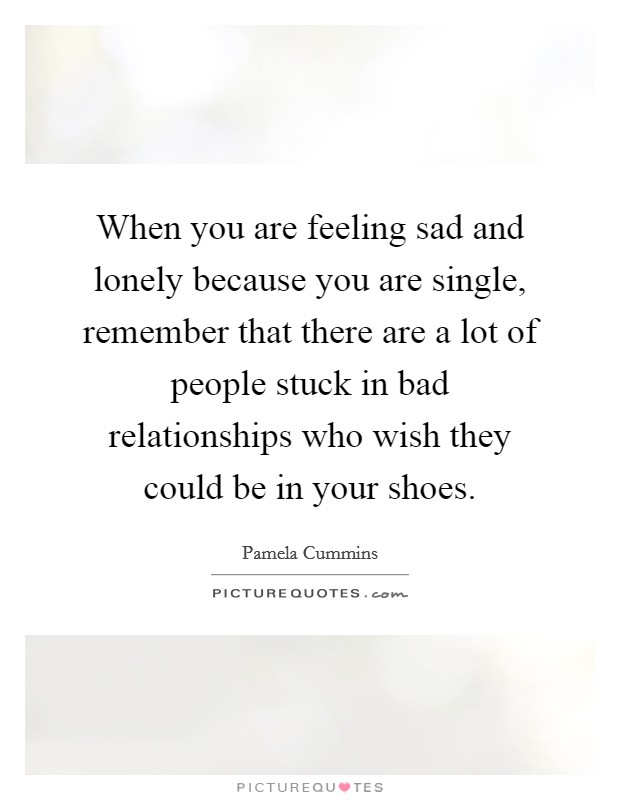 Then I feel alone and in the family.
Then I feel alone and in the family.
If no one in the family sees me, especially if it is a child, then I am lonely. Even worse - I am abandoned, because there are people around, but they are not interested in me, they do not look into my eyes. They only look at whether I do well in school and that I don't do anything bad. And that's how I'm raised. I grow up alone.
The same happens in partnerships: we have been together for 20 years, but at the same time we feel lonely. The sexual relationship is functioning, but am I in the relationship? Is the other talking about me - or only about yourself? Or just to satisfy some needs? If we don't take the time to talk to each other, as we did when we were in love, then we become lonely even in good relationships.
There are periods in every relationship when it feels lonely as the relationship develops more on a curve with ups and downs. We cannot be constantly ready to communicate with another, be constantly open to another person. We are immersed in ourselves, busy with our problems, feelings, and we have no time for another. But it can happen just when he needs it the most. At this moment, I am not for another, and the other feels alone, maybe even abandoned in trouble. Such situations occur in any relationship. But it doesn't harm the relationship if we can then talk about our different states. And then we find each other again. But sometimes these moments remain wounds that we receive in the course of our lives.
We are immersed in ourselves, busy with our problems, feelings, and we have no time for another. But it can happen just when he needs it the most. At this moment, I am not for another, and the other feels alone, maybe even abandoned in trouble. Such situations occur in any relationship. But it doesn't harm the relationship if we can then talk about our different states. And then we find each other again. But sometimes these moments remain wounds that we receive in the course of our lives.
We can experience loneliness not only when we are not in a relationship, but even when we are surrounded by people. And at the same time, we can not feel lonely when no one is around.
To understand loneliness, let's try to look at a person more deeply. Then we can understand why loneliness manifests itself in so many different ways.
Causes of loneliness
A person is a creature that, as it were, was placed into the world. The main idea of existential philosophy says that it is impossible to be human without being related to the world. To be human means fundamentally to be in the world, to be in connection with something or someone else. Without connection with otherness, it is impossible to be human.
To be human means fundamentally to be in the world, to be in connection with something or someone else. Without connection with otherness, it is impossible to be human.
It was in this way that Heidegger defined "being here" (existence). Heidegger often used the word Dasein instead of Person to show that I cannot be if I am not connected with You or It. To be here is to be in the world. In the world of my family, in the world of my city, in the world of my ideas and ideas. That is to say, being human is a fundamental correlation. If something does not function in this relation, then we lack something and may feel lonely.
But this connection is twofold. Martin Buber spoke about the relationship "I-Thou" and "I-It": I relate to another person, the same as me - and this is a personal relationship, or I relate to some thing, with some business ( e.g. "I'm driving a car"). That is, relationships have an outer pole, but they also have an inner pole. I also need to manage with myself, I need not just to BE in this world, but I must also be I.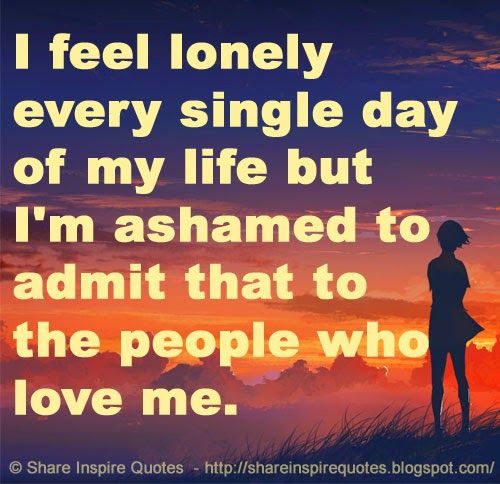 We have a correlation outside and a correlation with ourselves. This thought can help to understand three reasons why loneliness occurs.
We have a correlation outside and a correlation with ourselves. This thought can help to understand three reasons why loneliness occurs.
First of all, loneliness is a disturbance, a breakdown in relationships. In loneliness, we worry that relationships either do not exist, or they develop incorrectly. Relations with a person mean: I am connected with this person with my feelings, I would like to experience a person in my feeling. I would like to be able to feel what drives him and what he feels.
Let's think about the relationship with your child. I would like to feel how a child experiences and lives his life. I would like to participate in this, I would like to be close to him - because through closeness I have a feeling about my child and his life.
Relationships are more than relatedness in terms of feelings. Relationships always have a beginning, but relationships never end. Relationships are forever. And it can be assumed that since I always remain connected with the person with whom I have or had a relationship, I can never be alone. All the relationships that I had with other people have been preserved in me. If I meet my ex-girlfriend after 20 years on the street, then my heart starts to beat faster - because something was, and it still continues to be in me. Everything that happens in a relationship is saved. And I can live on that. If I experienced something good with some person, then this is a source for happiness in my later life. I can think of my mother, father, with whom I had a good relationship - and feel a warm feeling.
All the relationships that I had with other people have been preserved in me. If I meet my ex-girlfriend after 20 years on the street, then my heart starts to beat faster - because something was, and it still continues to be in me. Everything that happens in a relationship is saved. And I can live on that. If I experienced something good with some person, then this is a source for happiness in my later life. I can think of my mother, father, with whom I had a good relationship - and feel a warm feeling.
However, if the relationship is bad, then I don't want to remember them, I don't want to go back to the past. Then I wish it wasn't true. Then I lose contact with it. Relationships seem to be there, but they hurt me - and I turn away. And if I turn away, then the relationship in this moment no longer lives. Therefore, it may be that I will feel lonely, although I have or have had a relationship.
There is another reason why relationships can cause feelings of loneliness.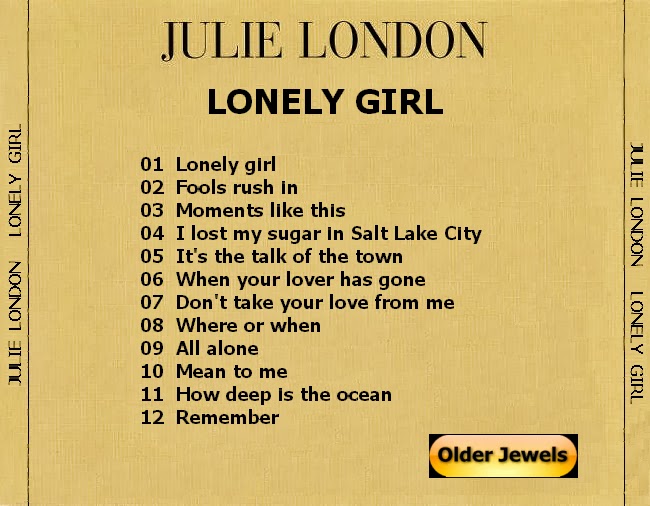 What we have described so far is the outer pole of the relationship. But there is a relationship directed inward, a relationship with oneself. If I don't feel myself, if I don't have feelings, if they are muffled, then I am alone with myself. If I do not feel my body, my breath, my mood, my well-being, my fatigue, my joy, my pain - if I do not feel all this, then I am not in a relationship with myself. Then I miss a fundamental, basic part of life.
What we have described so far is the outer pole of the relationship. But there is a relationship directed inward, a relationship with oneself. If I don't feel myself, if I don't have feelings, if they are muffled, then I am alone with myself. If I do not feel my body, my breath, my mood, my well-being, my fatigue, my joy, my pain - if I do not feel all this, then I am not in a relationship with myself. Then I miss a fundamental, basic part of life.
This can happen if I have had an experience that hurts - then I don't want to turn to myself. If I was offended, disappointed, deceived, if I was ridiculed, then I feel pain if I turn to myself. And this is a natural human reflex - to turn away from what causes pain and suffering. We have described it in terms of external relations, but also in internal relations I can withdraw from myself. And then I no longer feel myself, I am no longer in a relationship with myself. It can take me so far that I won't feel my body. I will feel my feelings to such a small extent that I will have psychosomatic disorders.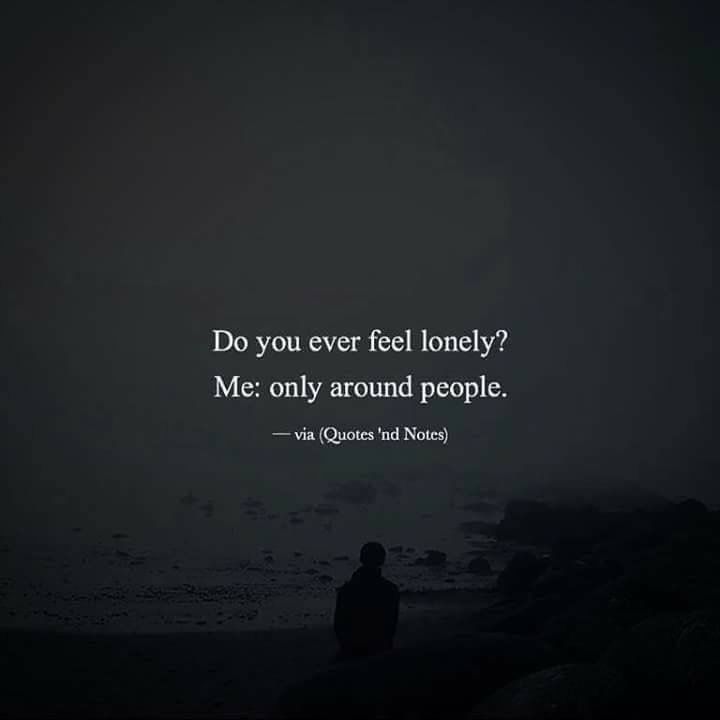 They always indicate that you do not feel something very important. This is a signal: you should not continue to live like this, feel what hurts you so that you can process it. So that you can mourn, so that you can forgive - otherwise you will not be free. Migraine, stomach ulcers, asthma and other disorders tell me: do not continue like this. There is something very important that you must do first.
They always indicate that you do not feel something very important. This is a signal: you should not continue to live like this, feel what hurts you so that you can process it. So that you can mourn, so that you can forgive - otherwise you will not be free. Migraine, stomach ulcers, asthma and other disorders tell me: do not continue like this. There is something very important that you must do first.
If I lose my relationship with myself, I can no longer feel myself. Or even worse, I can't have a relationship with you either.
I cannot truly experience a relationship with another if I am not capable of resonance, if there is no movement in me, because the feelings are too wounded. Or because I never really had them. If my mother never took me in her arms, if my father didn't have time for me, if I didn't have real friends, then I have a "blunted" world of feelings - a world that could not develop. Then my feelings are poor, and then I am always alone. Because I don't feel very well (or don't feel at all).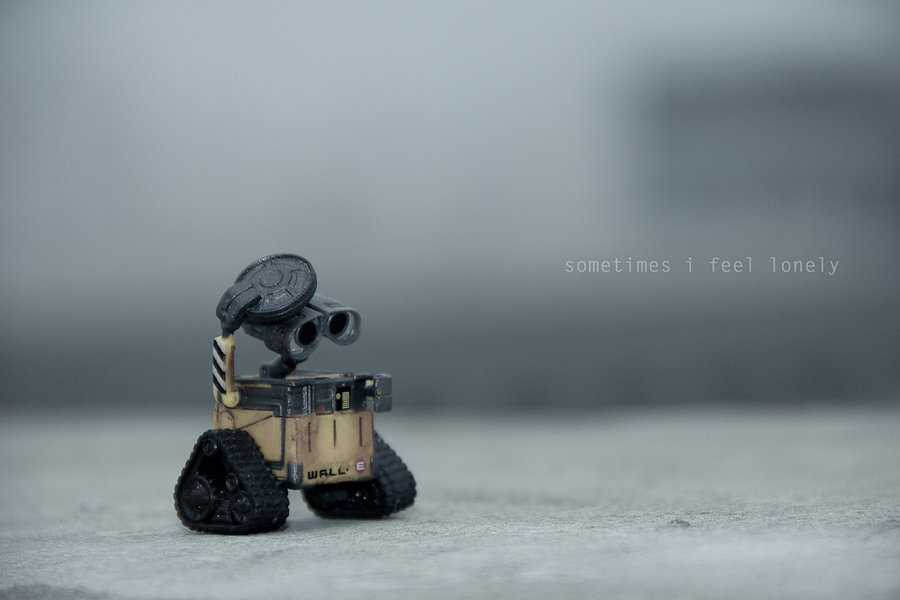 Therefore, in relation to the other person, my feelings are also flat. This is the second level of relationship that leads to loneliness.
Therefore, in relation to the other person, my feelings are also flat. This is the second level of relationship that leads to loneliness.
But there is also a third level, which is above the relationship level and which is also causally related to loneliness. This is the meeting level. This level is connected with the fact that I am I in a relationship. If in a relationship we can experience being together and feel the closeness of another person, then thanks to the I, another aspect is introduced that “explodes” this pleasant being together: for all our connectedness and mutual striving to meet, we realize that I am I, You are You, but I am not You. That difference, which is irremovable. It is eliminated, for example, in a symbiotic relationship, when I myself dissolve into you. But if I am I, then there is a boundary between us. Then I worry that, in principle, I am responsible only for myself, I am left alone with myself.
There is no second Alfried Lenglet in this world. Each of us is unique and unique. The way I am is unique nowhere else. And this is the basis that can potentially make us lonely in this world.
Each of us is unique and unique. The way I am is unique nowhere else. And this is the basis that can potentially make us lonely in this world.
Healing from loneliness
What can help here? The other person has the same feelings, he feels the same way. If it is You who turns to me, it will help me accept loneliness. If other people look at me, in my direction, then by doing so they will let me know: "I see you. You are here." And I really am here, and not only with my feelings - I am here as a Person.
If, for example, another person is listening to me, they are directed towards me. It is not only about the fact that there is some kind of movement of feelings, but that someone is trying to understand me. And he tells me that he understands what he thinks about this. If other people are interested in what I am doing, then I see that I have done this action, and this attracts the attention of another person. That is, not only I see it, others see it too. And then it becomes reality.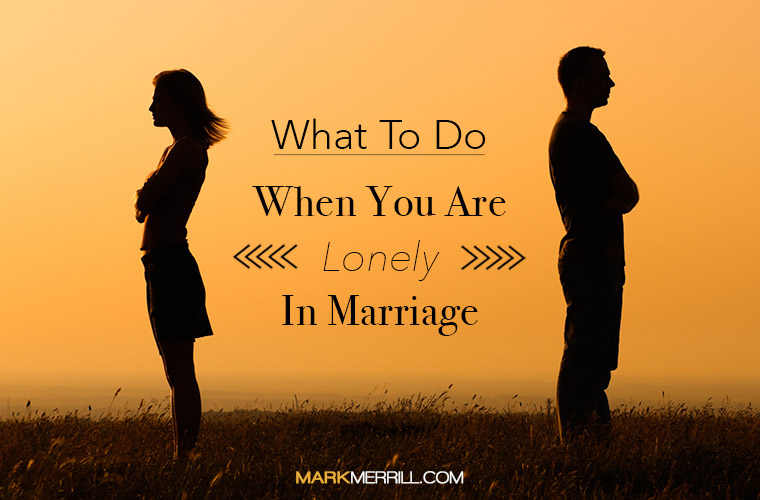 If others look at me that way, then they respect boundaries and differences. If I feel seen, it means that I was treated with respect.
If others look at me that way, then they respect boundaries and differences. If I feel seen, it means that I was treated with respect.
If other people take the next step and take me seriously, leave me my own: "Yes, you baked this cake, not me," then they treat me fairly. If they listen to my comments, if they say, "What you said is important. Can you explain it further?" then these people treat me fairly. This is an even higher level than just being seen. Being seen means that I have respect for the border, I do not step on you, I do not go around you. The pinnacle of all this is the recognition of my worth. If the other says "I like it"; "I think it's important," then I get a value judgment from the other. And thus my own value takes root. I can get some criticism, but it gives me a certain edge as a Person. If others come to me, tune in to me - I'm not alone.
If all this happens when I am a child, then I can build my Self. The development of the Self is connected with meeting other people.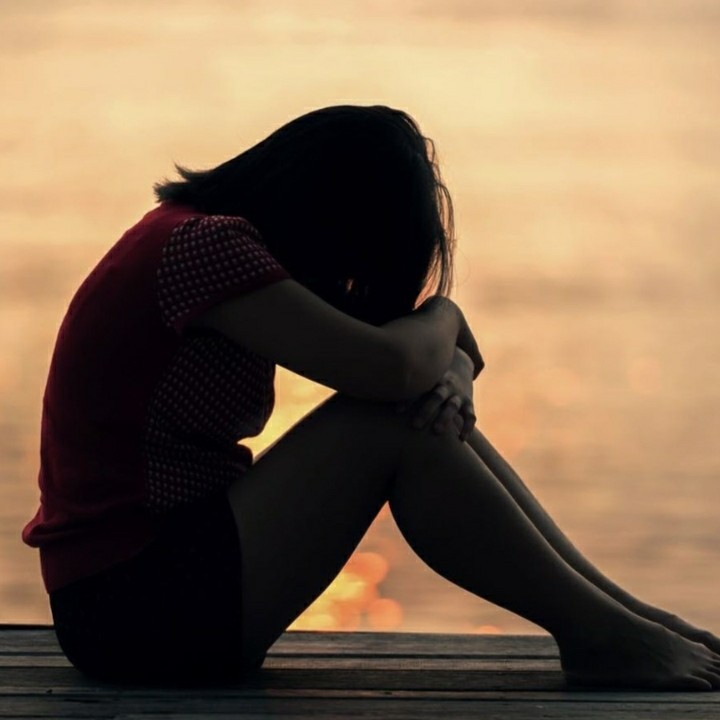 Parents are the people who see me, who take me seriously and tell me that they appreciate me. And then the child can begin to do the same with himself.
Parents are the people who see me, who take me seriously and tell me that they appreciate me. And then the child can begin to do the same with himself.
We need to learn this. We can learn it from others, but we cannot develop it in ourselves without You. That is why Martin Buber said that I becomes I next to You. The self acquires the ability to treat itself - and then treat others in the same way. The person who survives the meeting develops abilities through which he can meet others.
We have Person - this is the source. This source itself begins to speak in us, but for this the Self must be heard. This I needs You, who will listen to him. By meeting with the other, I can go to myself. And in doing so, I have the basic experience of being a Person. I am self-confident, I have an inner life, the Person inside me speaks to my I, and through the I speaks to You and thus expresses itself. If I live out of this alignment, then I am authentic, then I really am I. And then I am no longer alone.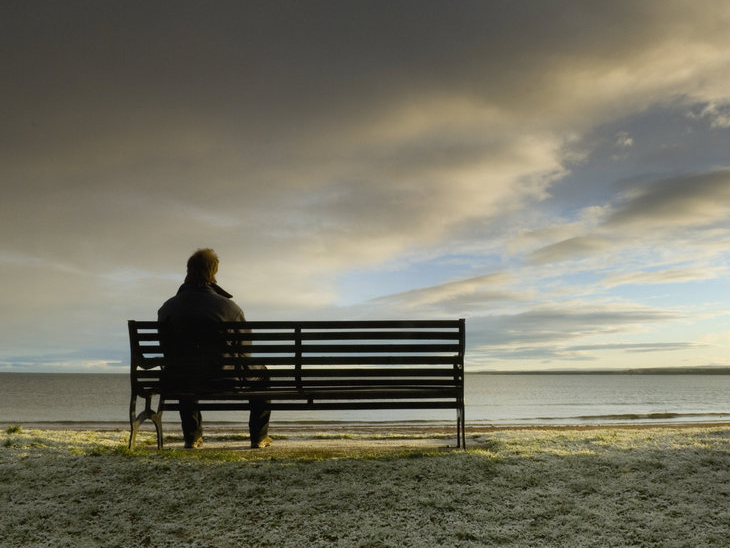
Read full text at thezis.ru
6 Reasons Why I Feel Lonely in Relationships
For many people, a stable relationship means that they will benefit from being with their loved one for the rest of their lives. From exchanging ideas with a partner to being physically present all the time, we expect relationships to give us a sense of intimacy, mutual affection, and deep understanding. What we certainly do not expect when we commit our lives to the person we love is that we will feel alone in a loving relationship.
Dr. Stefania Azri, family therapist and life coach, says she often sees couples who experience only one feeling in a relationship - a feeling of emptiness and loneliness, which they struggle to explain. Couples involved and really interested in each other, who want to improve relations and return their former passion to them, cannot understand what happened to them and why their once happy life together has turned into a boring and banal coexistence.
Loneliness can mean different things to different people. For some people, loneliness is embodied in the feeling that the partner does not hear or see them. Other people feel unloved or unwanted in a relationship. Some feel disconnected and detached from the relationship, feel anxious when raising issues that are important to them, and some feel lonely because the partner does not share news (good or bad) with them, does not pay attention to their contribution to the relationship, etc. .
Loneliness in a relationship also implies a feeling of uncertainty about the future, a sudden desire to make important decisions independently and without prior discussion with a partner, make plans for the future (short-term or long-term), in which there is no place for the other half, a feeling of sadness, emptiness or hopelessness etc.
✔ How do you know if you are alone in a relationship?
Jane Greer , PhD, New York marriage and family therapist and author of Book "What About Me: Don't Let Selfishness Ruin Your Relationship" (What About Me: Stop Selfishness From Ruining Your Relationship) reveals that the biggest sign of loneliness is that you feel worse, not better, when you are close to your partner. You feel completely alone, without support, unprotected and vulnerable, you are offended and unpleasant, you want to be as far away from your partner as possible and do not want to share the same space with your loved one.
You feel completely alone, without support, unprotected and vulnerable, you are offended and unpleasant, you want to be as far away from your partner as possible and do not want to share the same space with your loved one.
Here are some red flags that indicate that you are alone in a relationship.
1. You no longer share details with your partner and tell how your day went
“In a healthy relationship, you can't wait to tell your partner about all the parts of every day, good, bad or stupid. But when you no longer have the desire to share the details of your day with your loved one, or you try to tell your partner about something, but he does not listen to you, interrupts or looks at the phone screen and texts someone, and this repeats every day per day for a long period of time, then we can conclude that in this relationship you are alone. You begin to understand that you are guided in all the nuances of everyday life on your own and do not expect anything else from a partner,” Greer explains.
2. Your sex life is in a dead end
"Intimacy plays a big role in establishing and maintaining a connection with a partner" , says Sheena Hankin , Ph.D., a psychotherapist from New York. And it is the lack of intimacy that becomes the vicious cycle that makes you feel alone in the relationship. You don't feel close to your partner, so you don't want to have sex and exchange sexual energy, and when you're not together, it further increases your sense of isolation and loneliness.
3. You try to spend as little time with your partner as possible
soulmate and not spending time with her, then this indicates that you are trying to avoid problems in your relationship. And these problems most often include a feeling of loneliness,” explains Tina Tesina , Ph.D., psychotherapist in Long Beach, California, author of Money, Sex, and Children.
You may develop unhealthy habits as a result of this, such as drinking or eating more when you are with your partner, going out to smoke a cigarette more often, or getting addicted to drugs or psychotropic substances, just to drown out the oppressive feeling of loneliness and not think about it. that your relationship has finally and irrevocably deteriorated.
that your relationship has finally and irrevocably deteriorated.
4. Loneliness is your background state
Advertising
“You feel lonely both when your partner is not around and when you are in the same room with your loved one. If you are sitting together at the dinner table and you have nothing to say to each other, this is a sign that you really feel abandoned and unwanted, , Greer tells .
The fact that you are lonely and uncomfortable in a relationship is also indicated by the fact that you are reluctant to share thoughts and feelings with your partner for fear of being rejected or judged.
✔ Why Loneliness Happens in Relationships: 6 Common Reasons
Although research shows that relationships can protect against loneliness in and of themselves, they don't always work the same way with everyone. Whatever the reason, loneliness in a relationship is common. A Pew Research Center survey found that nearly 30% of those who are dissatisfied with their family life feel lonely all the time or most of the time, compared to 7% of those who are completely satisfied with their family relationships.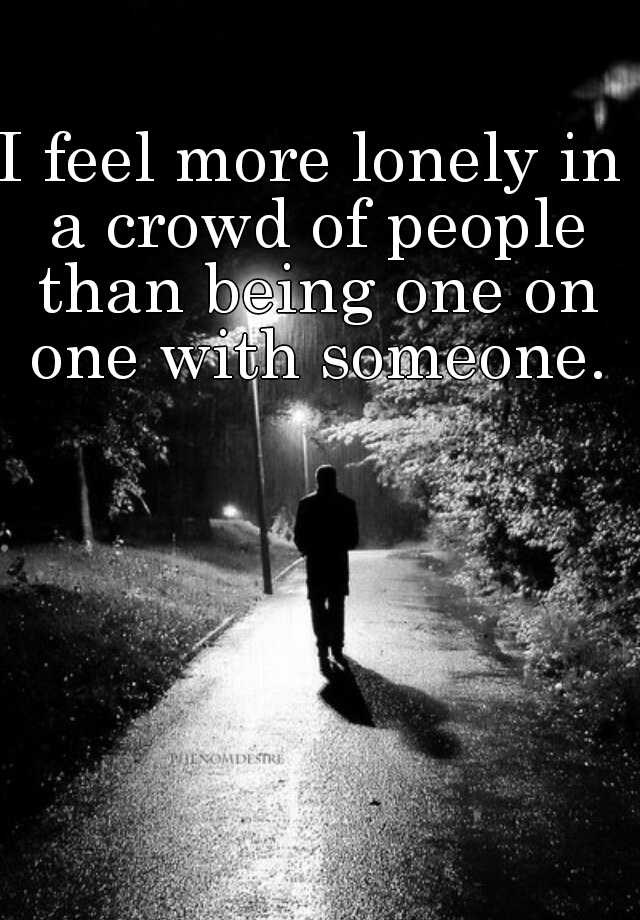
Another 2018 study by the insurance company Cigna found that two out of five Americans believe that their relationship (not only marriage, but also romantic) has no meaning.
The pandemic that we recently had to endure has only exacerbated these feelings. “During the lockdown, we were completely dependent on our inner circle as we had fewer opportunities to get out of the house and fill our lives with activities. We did not have the opportunity to walk around the city or meet friends for a cup of coffee. As a result, those people who already felt lonely in a relationship experienced an even more pronounced feeling of loneliness and uselessness, ”argues Greer .
If you are in a relationship, but you constantly feel lonely next to your partner, then sooner or later you will start to think about why this is happening and what exactly caused this unpleasant feeling. There are 6 common reasons why you feel lonely in a relationship.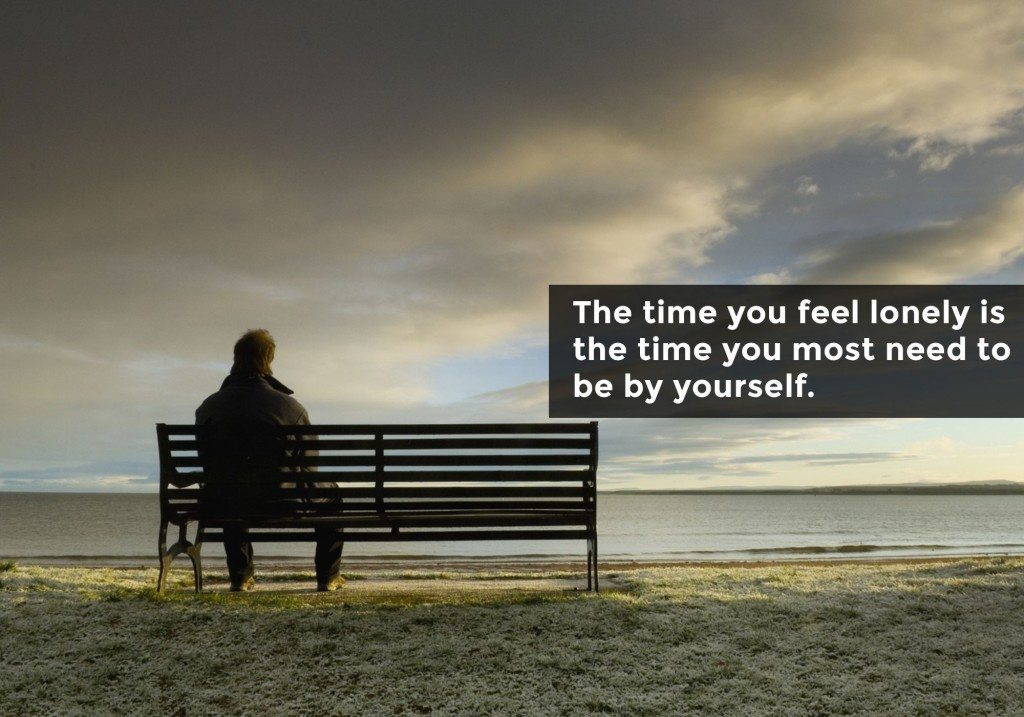 We will analyze each of them in detail.
We will analyze each of them in detail.
1. Feeling lonely as a permanent internal state
It may seem strange and surprising, but such an internal personality characteristic as attachment style can most directly affect your daily life and make you feel lonely in a relationship. Because of the characteristics of your own attachment style, you experience an intense sense of loneliness when you are in the company of someone you love.
We've all heard of "attachment" when it comes to children. But what role does attachment play in adults when it comes to relationships? Adults can exhibit four attachment styles: secure, dismissive-avoidant, anxious-preoccupied, and fearful-avoidant.
✔ Safe. Adults demonstrating this style of attachment need less attention from their partner than those with other styles. They are more often than not 100% satisfied with their relationship, have more trust in their partner, are able to balance the need for support and the need for independence (and appreciate the same in their partner).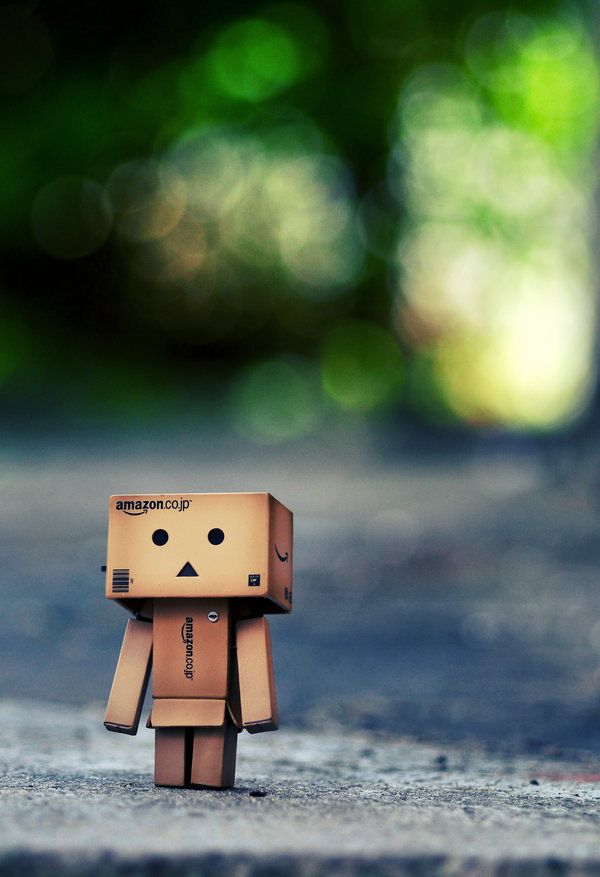 Adults with a secure attachment pattern usually do not complain about feelings of loneliness in their relationship, showing a more "easy and playful" attitude.
Adults with a secure attachment pattern usually do not complain about feelings of loneliness in their relationship, showing a more "easy and playful" attitude.
Advertisement
✔ Disdainful avoidant. Negligent avoidant partners tend to distance themselves from their loved one. They may isolate themselves or take on the role of "manager" or "parent". Neglect-avoidant partners may try to convince themselves that they are independent and no longer need to connect with their loved one, but this only leads to more detachment in the relationship. They can be blunt and/or act like they don't care, but deep down they feel lonely and unwanted if a partner doesn't give them enough attention.
✔ Anxious and preoccupied. Partners with an anxious attachment style want their significant other to be a constant presence in their lives. If the partner does not pick up the phone and does not call back after 10 minutes, then a person with an anxious-preoccupied attachment style has a panic attack. Such people are described as "emotionally hungry" and "constantly resentful". They can talk for hours about how they need their partner, claim that without a partner their life loses its attractiveness and turns into a series of gray and boring everyday life. People with anxiety-preoccupied attachment without fulfilling relationships feel small and worthless.
Such people are described as "emotionally hungry" and "constantly resentful". They can talk for hours about how they need their partner, claim that without a partner their life loses its attractiveness and turns into a series of gray and boring everyday life. People with anxiety-preoccupied attachment without fulfilling relationships feel small and worthless.
In a relationship, people with this attachment style become clingy and obsessive almost immediately. When a partner, exhausted by constant attention and control, asks (and sometimes demands) more free space, they immediately begin to feel lonely.
✔ Frightened avoidant (disorganized). A person with a disorganized attachment pattern lives in a constant state of fear and/or confusion, trying to find a balance between being too close and being too far from his partner. There is a real ambivalence in these people in what they feel. It is difficult for them to understand how to act in order to build a creative and harmonious relationship with a partner.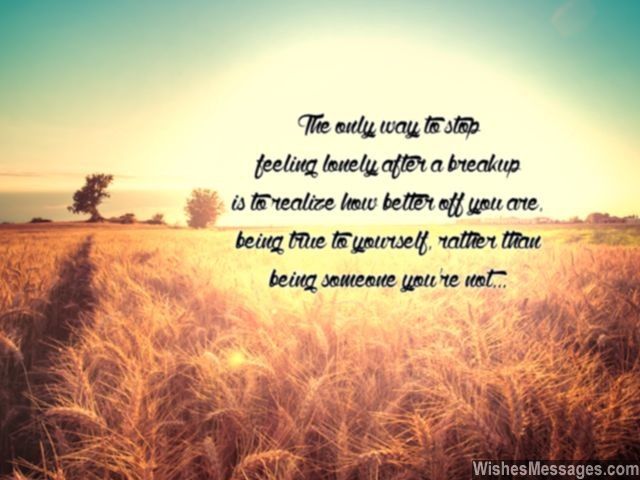 People with a fearful avoidant attachment style feel overwhelmed by their emotional cyclones, so being alone in a relationship is a fairly common experience for them.
People with a fearful avoidant attachment style feel overwhelmed by their emotional cyclones, so being alone in a relationship is a fairly common experience for them.
Adults with this attachment style most often had a difficult childhood. Children's psychological traumas, which they rarely realize and work through, cause a constant feeling of resentment (sometimes purely subjective) in relation to a partner. They need a loved one to feel safe, but constant resentment against him does not allow them to create a deep emotional connection and strengthen relationships.
People who display a fearful-avoidant attachment style suffer the most from loneliness in relationships. But do not give up and put an end to your relationship, because the style of attachment can be changed with the help of books on self-help, therapy and tireless work on yourself and your childhood traumas.
2. Mental health and loneliness
How exactly is mental health related to feelings of loneliness in your relationship? The mechanism of interaction is very simple: our thoughts affect our emotions, and emotions affect our behavior. For example, a depressed person who feels flat, low, insecure, and worthless in a relationship with a loved one will feel the same way. Such a person will feel lonely because depression will make him feel that way. If a person has certain mental health problems, then this will leave a certain imprint on his relationship with a partner.
For example, a depressed person who feels flat, low, insecure, and worthless in a relationship with a loved one will feel the same way. Such a person will feel lonely because depression will make him feel that way. If a person has certain mental health problems, then this will leave a certain imprint on his relationship with a partner.
The same goes for anxiety. If we feel anxious, we may find ourselves feeling fear, going into the worst-case scenario, or simply internalizing all of these emotions and thereby blocking our partner's positive influence.
If we take it a step further and dig deeper, we can see that trauma can affect how we manage relationships, how we trust others, and what future scenarios we envision in our heads. When people have actually experienced adverse events in their lives, they can continue to expect them in the future. This can also lead to them feeling very alone in the relationship due to their somewhat distorted life experiences.
✔ Working on your mental health is a very important aspect to improve not only mutual understanding with your partner, but also the quality of your own daily life.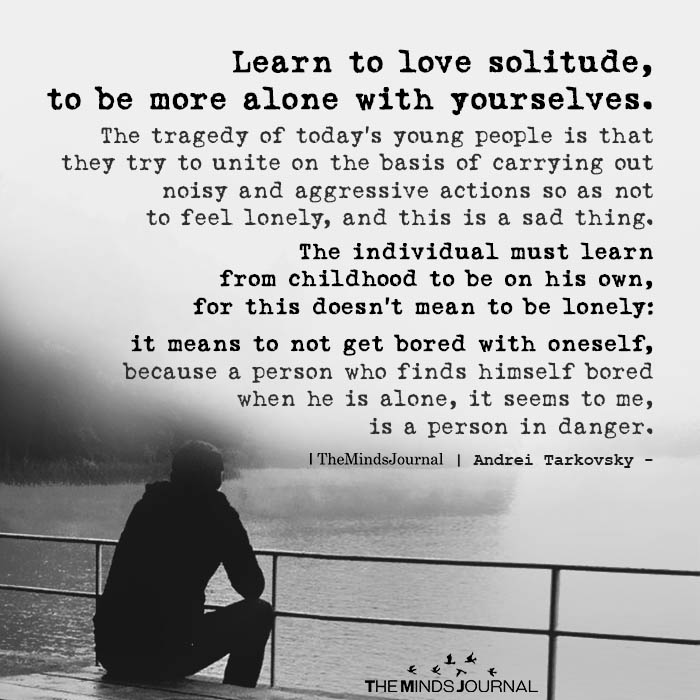 This is vital to a healthy relationship. You must remember once and for all: your happiness depends on you and only on you. If you feel lonely in a relationship due to mental health issues, then your partner will not be able to help you become a happier and more cheerful person. The rescue of drowning people is the work of the most drowning people, especially in this situation!
This is vital to a healthy relationship. You must remember once and for all: your happiness depends on you and only on you. If you feel lonely in a relationship due to mental health issues, then your partner will not be able to help you become a happier and more cheerful person. The rescue of drowning people is the work of the most drowning people, especially in this situation!
Advertisement
Depending on what kind of mental problems you have, you can try to work on them yourself with the help of motivational books or videos, special techniques, etc. If your mental health requires extra work, then be sure to seek professional help from a therapist and / or family doctor.
As your mental health improves, you will feel less alone in relationships. The less negative emotions you experience in relation to your partner, the easier it will be for you to build relationships and return their former passion to them. After working on yourself and your mental health, you will no longer experience feelings of loneliness in a relationship.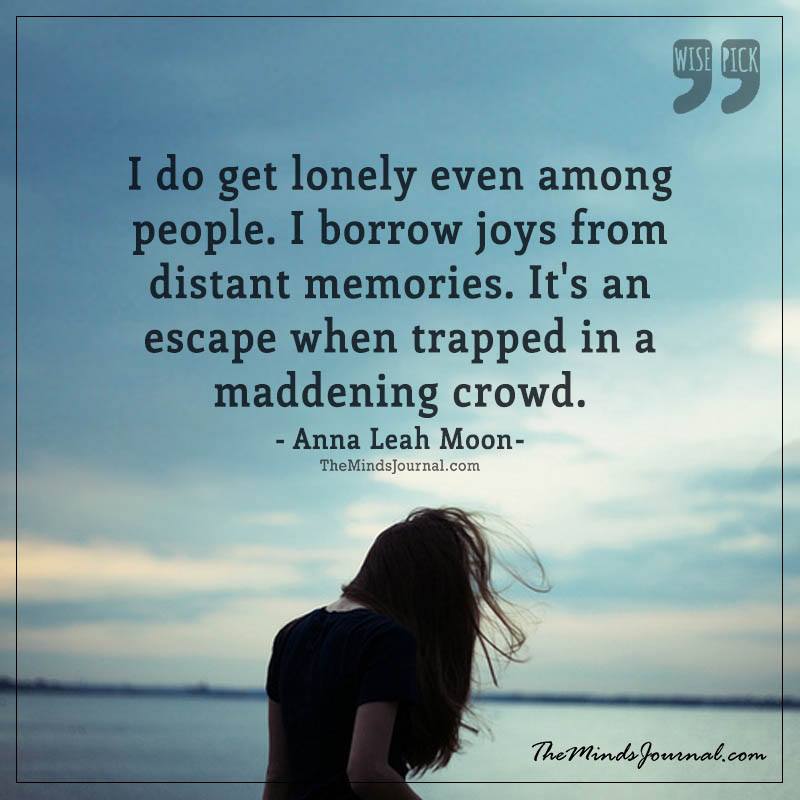
3. Communication problems with a partner
We have already talked about how it is possible to feel lonely in a relationship due to improper attachment style or mental health problems. But in many cases, the feeling of loneliness in a relationship arises as a result of external factors. Simply put, if you feel lonely in a relationship, it's not only you, but also your partner's fault.
✔ Poor communication with a partner is one of the reasons for loneliness in a relationship. Communication is the foundation of any relationship. Properly built communication allows couples to hear each other, find meaning in the transmitted information and adequately respond to what they hear.
There is a right way and a wrong way to communicate. Aggressive, dismissive, indifferent, and/or argumentative communication between two partners results in one of them feeling rejected, unloved, and alone in the relationship. No matter how much partners love each other, without normal communication, they eventually begin to move away from each other and experience negative emotions and feelings towards each other.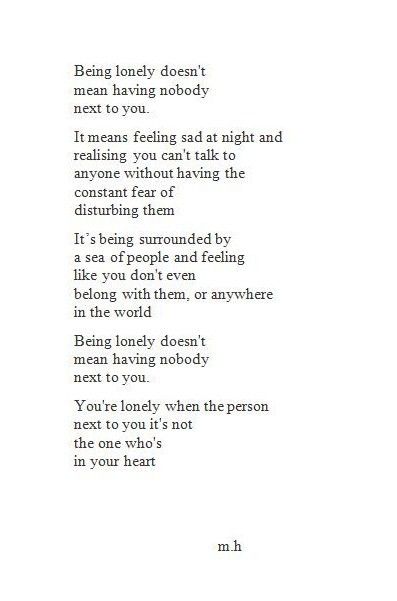
Making time for constructive and pleasant communication is of paramount importance. This is true for partners who see each other every day, and for couples who work away from home and deal with physical absence and/or physical distance. Planning to spend time together is a good way to stop feeling lonely in a relationship.
The quality of time spent together is of great importance. It's important to make time to be together if you don't want to feel alone in your relationship. But what is equally important is to make sure that you have a really high quality time together. Taking out the garbage together can be a time spent together, but you can hardly call such a pastime quality and useful, right?
Pay attention to the quality of your communication and spending time together and make it more fun, enjoyable and varied. Plan your activities one by one for more fun!
4. Different goals, life priorities and expectations
How do goals, life priorities and expectations relate to feelings of loneliness in a relationship?
As Austin Bollinger, psychologist, life coach, and family therapist explained, goals are like a roadmap for any relationship.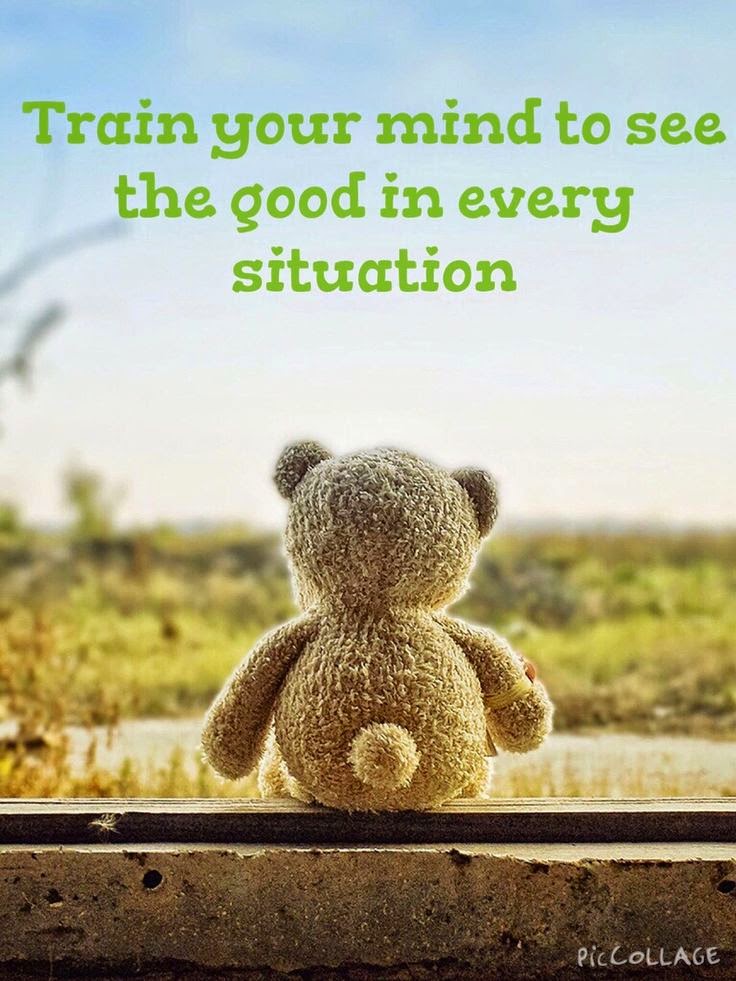 They lead us in a certain direction to achieve something that both of us together with a partner (and it would be great if equally) want to achieve.
They lead us in a certain direction to achieve something that both of us together with a partner (and it would be great if equally) want to achieve.
What happens when partners have different goals, when they expect completely different approaches and/or results? This leads to disconnection from the relationship - a feeling of confusion, disappointment, hopelessness. Needless to say, this is enough to make people who love each other feel lonely simply because the goals they set for themselves do not match those of their partner.
✔ Compatibility in a relationship is important in this sense. Feeling alone in your relationship may mean that there has been a significant shift in your life priorities, and either you both need to re-evaluate your goals and steer them in a common direction, or accept that the journey is no longer on a common path.
5. Loneliness in relationships and unmet needs
People have needs – physical, emotional, spiritual and sexual needs, just to name a few. When we are in a relationship, we hope that some of these needs (if not all, most of them) will be met by the person we love most in the world. When this does not happen, we feel rejected, unloved, alone.
When we are in a relationship, we hope that some of these needs (if not all, most of them) will be met by the person we love most in the world. When this does not happen, we feel rejected, unloved, alone.
✔ Needs unmet in a relationship cause us to look elsewhere. This is human nature and it is universal. Someone is looking for a relationship on the side and gets a lover / mistress. Some prefer distractions such as work, friends, hobbies, etc.
When our needs are not met, we feel lonely, and our human brain will seek to fill this void in any way possible. It may take a person some time to realize that expressing their needs is not selfish or narcissistic. This is what all people, without exception, need to feel safe. Feeling safe is exactly what a person wants in a relationship for both themselves and their partner. If there is no sense of security in the relationship, then there is a feeling of loneliness.
6. Loneliness in relationships and intimacy
Men and women experience intimacy differently.